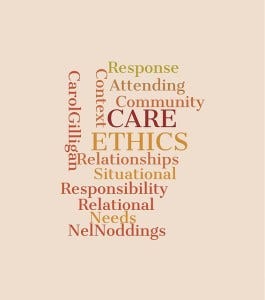Have we Americans Forgotten our Moral and Ethical Obligations?
According to American Historian and Ethicist Steven Mintz:
There Are No Consequences for Destructive Behavior
Unsurprisingly, a record-high 50% of Americans rate the overall state of moral values in the U.S. as “poor,” and another 37% say it is “only fair.” Just 1% think the state of moral values is “excellent,” and 12% are “good.” These results are from a Gallup Poll released on June 15, 2022.
The nation's moral values have an all-time low rating.
Causes of the Moral Decline
Why do Americans rate the moral values of their citizens so low? We only need to consider the mass killings in the last two months. From Buffalo to Uvalde to Highland Park, crazed killers go on a shooting-sprees and kill or wound dozens of innocent people. But it goes much deeper than that.
We are halfway through the year, and the country has experienced at least 309 mass shootings. At least 309 in just over 26 weeks. 11 per week on average.
Do We Have a Moral Obligation to Help Others? An Ethical Exploration
The American Bar Association: “A moral obligation is a requirement to pursue what we believe is right and act accordingly.”
1. The biblical parable in the Book of Genesis warns us why it may be imperative to help our fellow humans.
When Cain kills his brother, Abel, God asks him, “Where is Abel, your brother?”
Cain answers, “I do not know. Am I my brother’s keeper?” God curses Cain to live as a fugitive and a wanderer for his crime.
2. The ideal society in the Torah (the first books of the Hebrew Bible) and Deuteronomy is organized around taking care of other people.”
In ancient Judaism and Christianity, you must love and care for your neighbor.
3. The teachings of the Torah prompted Jesus to preach that we should “love thy neighbor as thyself.”
Moral obligations are deeply ingrained principles that guide our behavior and actions in society. These principles are derived from various sources, including cultural norms, societal rules, religious beliefs, and personal values. A core tenet across many ethical systems is the concept of helping others.
Helping others is crucial to ethical conduct. Helping others is a near-universal feature of ethical thought.
In contemporary society, we often face opportunities to help others, from aiding a neighbor in need or giving to humanitarian efforts globally. Recognizing the value of helping others is a moral obligation.
In our complex and interconnected world, whether we have a moral obligation to help others is profoundly important. This essay explores the ethical dimensions of human altruism, arguing that we possess a moral duty to assist those in need. By examining the foundations of morality, the principle of reciprocity, and the recognition of human dignity, it becomes evident that helping others is essential to our shared humanity.
The Nature of Morality: Morality encompasses a set of principles and values that guide our behavior and shape our interactions with fellow human beings. It reflects our inherent understanding of right and wrong and is rooted in our capacity for empathy and compassion. The moral obligation to help others arises from recognizing their suffering and our ability to ease it. It is a fundamental aspect of our social contract, which binds us to the well-being of our fellow beings.
The Principle of Reciprocity: The principle of reciprocity, commonly known as the Golden Rule, is a cornerstone of many ethical systems. It states that we should treat others as we wish to be treated. By applying this principle, if we were in a position of need, we would hope for help from others. We are connected, so helping others is our moral duty.
Human Dignity and Equality: Everyone possesses inherent dignity and worth, irrespective of their circumstances, social status, or geographic location. This principle forms the basis of human rights and emphasizes the equal value of all human lives. Acknowledging this inherent worth places a moral obligation on us to safeguard and uplift the dignity of others. It compels us to address poverty, injustice, and suffering, striving to create a more fair and compassionate society.
Overcoming the Tyranny of Distance: Advancements in technology and globalization have brought the world closer together, allowing us to witness the suffering of others in real time. We can no longer claim ignorance or distance as valid reasons to ignore the plight of those in need. Our moral responsibility extends beyond our immediate surroundings and encompasses the broader human family. As global citizens, we possess the means and resources to assist others, so we must act upon this obligation.
Fostering Personal Growth and Well-being: Helping others is an ethical obligation and a pathway to personal growth and fulfillment. When we help others, we improve their lives and enrich our own. By extending a helping hand, we cultivate compassion, empathy, and gratitude. Engaging in acts of kindness and altruism promotes a sense of purpose and satisfaction, contributing to our overall well-being.
We have a moral obligation to help others. Our shared humanity, the principle of reciprocity, and the recognition of human dignity all underscore this imperative. Embracing our moral responsibility to help those in need is a testament to our collective progress and the values we hold dear. By extending compassion and aid to others, we create a more just, empathetic, and interconnected world, fulfilling our moral duty. Let us, therefore, strive to make the welfare of others an essential part of our lives and contribute to a brighter future for all.





